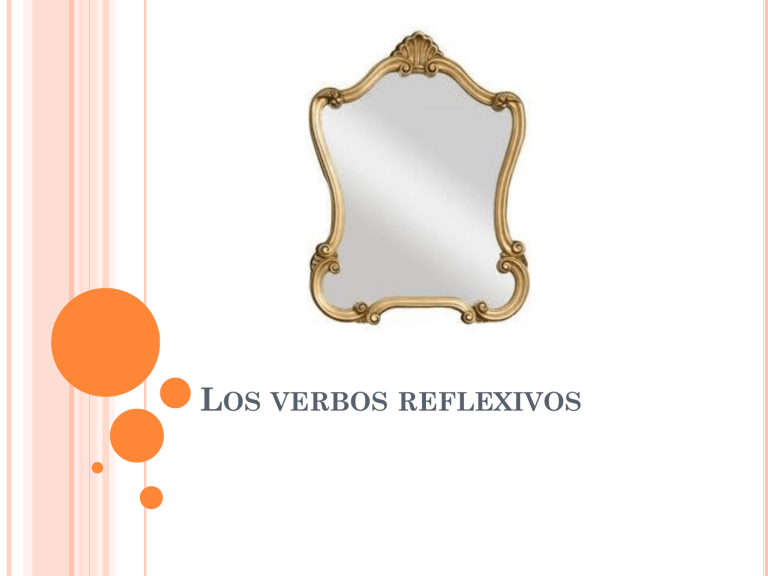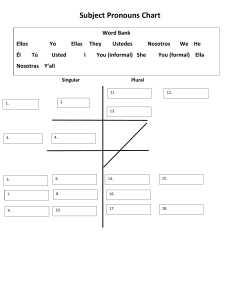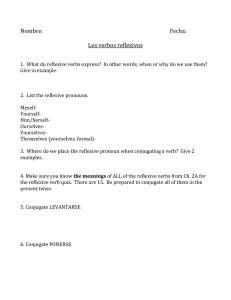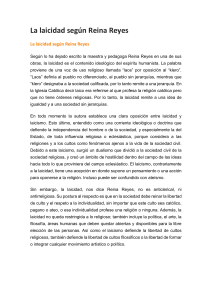
LOS VERBOS REFLEXIVOS QUÉ SIGNIFICAN A reflexive verb is a type of verb different from the normal “bailar”, “comer”, “vivir” verbs. Reflexive verbs show what you do to yourself. It has the addition of “se” attached to the end Example, vestirse In order to conjugate the verb correctly, the se must be moved and/or changed QUÉ SIGNIFICA REFLEXIVO If you simply say “lavo”, it means “I wash”, but it doesn´t tell us who or what you’re washing. By adding the reflexive pronoun, you are stating that you wash yourself. “Me lavo” means “I wash myself” CÓMO FORMAMOS EL REFLEXIVO Step 1: Drop off the “se” BañarseBañar (se) doesn’t disappear) Step 2: Conjugate the verb for the person (yo) Bañar Baño (se) Step 3: Change “se” and move before the verb. Bañar Baño (me) Me baño ¡Acabado! LOS PRONOMBRES “se” can be changed to match the 6 subjects Yo: me Tú: te Él/Ella/Ud.: se Me: myself Te: yourself Se: himself herself its self Nosotros: nos Vosotros: os Ellos/Ellas/Uds.: se Nos: ourselves Os: yourselves Se: themselves/yourselves PRÁCTICA Conjugate “levantarse” for all 6 people Yo: Tú: Él: Nosotros: Vosotros: Ellos: PRÁCTICA 1. ______ levanto a las 8. 2. ______ lavamos las manos en el lavabo. 3. ______ afeitas todos los días. 4. ______ acostáis depués de la película. 5. ______ baña primero. 6. ______ cepillan los dientes. PRÁCTICA 1. Traduzcan: You shower yourself (ducharse) 2. Y’all wash your hands (lavarse) 3. She brushes her teeth (cepillarse) 4. We fall asleep (dormirse o-ue) 5. I get up (levantarse) ¿REFLEXIVO O NO? ¿REFLEXIVO O NO? ¿REFLEXIVO O NO? ¿REFLEXIVO O NO? ¿REFLEXIVO O NO? ¿REFLEXIVO O NO?


